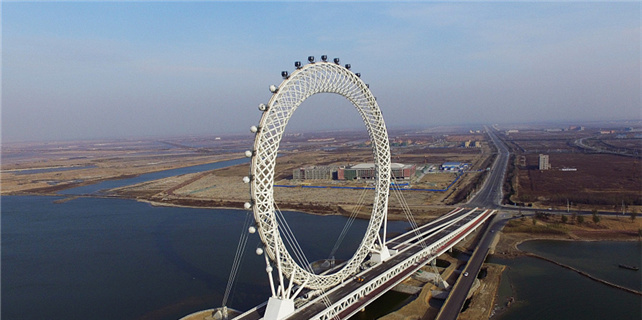DPRK missile sparks global reaction




Denuclearizing the Korean Peninsula, maintaining the international nuclear-nonproliferation regime and preserving peace and stability in Northeast Asia are China's unswerving goal, Chinese President Xi Jinping told US President Donald Trump in a phone conversation on Wednesday.
Xi said China would like to keep up communications with the US and all other related parties, and jointly push the nuclear issue toward the direction of peaceful settlement via dialogues and negotiations.
The phone call came hours after the Democratic People's Republic of Korea announced it had successfully test-fired a newly developed "Hwasong-15" Intercontinental Ballistic Missile, which is capable of striking the entire US mainland.
The Washington Post reported the event on Wednesday on its front page with the headline "North Korea's latest missile launch appears to put US capital in range".
Trump, in a tweet posted on Wednesday, said he had just spoken to President Xi "concerning the provocative actions of North Korea. Additional major sanctions will be imposed on North Korea today. This situation will be handled!"
It was not immediately clear what the additional sanctions are.
"President Trump emphasized the need for China to use all available levers to convince North Korea to end its provocations and return to the path of denuclearization," the White House said in a readout of the phone call.
On Wednesday, Beijing expressed "grave concern and opposition" to Pyongyang's latest missile test and called for talks to peacefully resolve the nuclear crisis on the peninsula.
"The United Nations Security Council resolutions are explicit about Pyongyang's use of ballistic missile technologies, and China strongly urged Pyongyang to stop activities that increase tensions on the peninsula," Foreign Ministry spokesman Geng Shuang said.
Geng also said that the "suspension for suspension" initiative proposed by China is the most feasible and reasonable approach to ease the current situation.
Russia's Foreign Ministry also urged the DPRK to stop the nuclear missile tests, and asked the US and South Korea to stop military exercises to be held at the beginning of December, which will only inflame an already explosive situation.
Raj Shah, principal deputy press secretary at the White House, said on Wednesday, "We're looking forward to applying as much pressure as we can to get to our ultimate goal, which is a denuclearized Korean Peninsula."
US State Department Spokesperson Heather Nauert also said the goal for the ongoing maximum pressure campaign is to use economic and political pressure to persuade Pyongyang to reconsider the path it is on and think about engaging in a meaningful dialogue about a different future.
Pyongyang said, "The development and advancement of the strategic weapon of DPRK are to defend the sovereignty and territorial integrity of the country from the US imperialists' nuclear blackmail policy and nuclear threat, and to ensure the peaceful life of the people."
"It is DPRK's solemn declaration that the missiles would not pose any threat to any country and region as long as the interests of the DPRK are not infringed upon," said a statement released by the official Korean Central News Agency.
Speaking at an emergency UN Security Council meeting on Wednesday afternoon at UN headquarters, Wu Haitao, China's deputy permanent representative to the UN, said China has consistently advocated dialogue and negotiations as the means to achieve a settlement and to oppose conflict and chaos on the peninsula.
For now, the top priority is for all the parties concern to keep restraint, implement comprehensively and strictly relevant Security Council resolutions and strive for an early resumption of dialogue and negotiations, Wu said.
US ambassador Nikki Haley said, "We have never sought war with North Korea, and still today we do not seek it. If war does come, it will be because of continued acts of aggression like we witnessed yesterday."
On Wednesday, United Nations political affairs chief Jeffrey Feltman met with DPRK's Ambassador Ja Song Nam to tell him Pyongyang must "desist from taking any further destabilizing steps", according to a Reuters report.
Lisa Collins, a fellow with the Korea Chair at the Center for Strategic and International Studies, analyzed the pattern of the DPRK's missile testing and suggested on Wednesday, "The space for dialogue may therefore be limited to the next three months when we can expect fewer provocations from North Korea."
Xinhua and Mo Jingxi in Beijing contributed to this report.
Contact the writers at huanxinzhao@chinadailyusa.com












